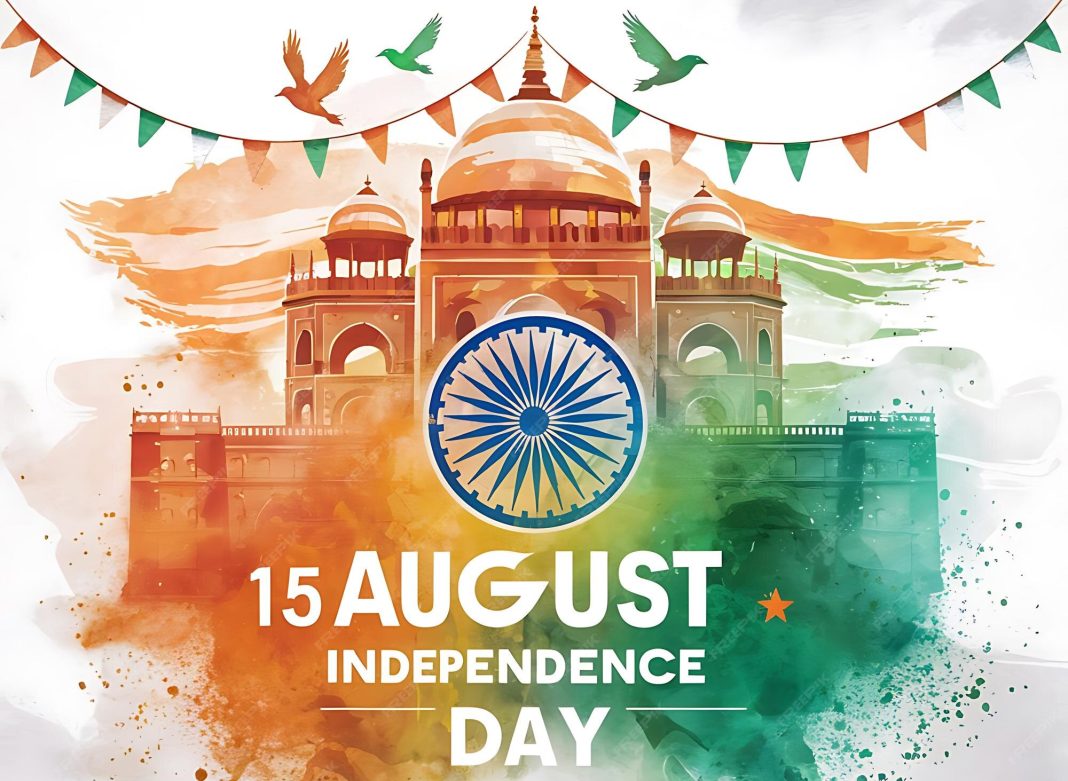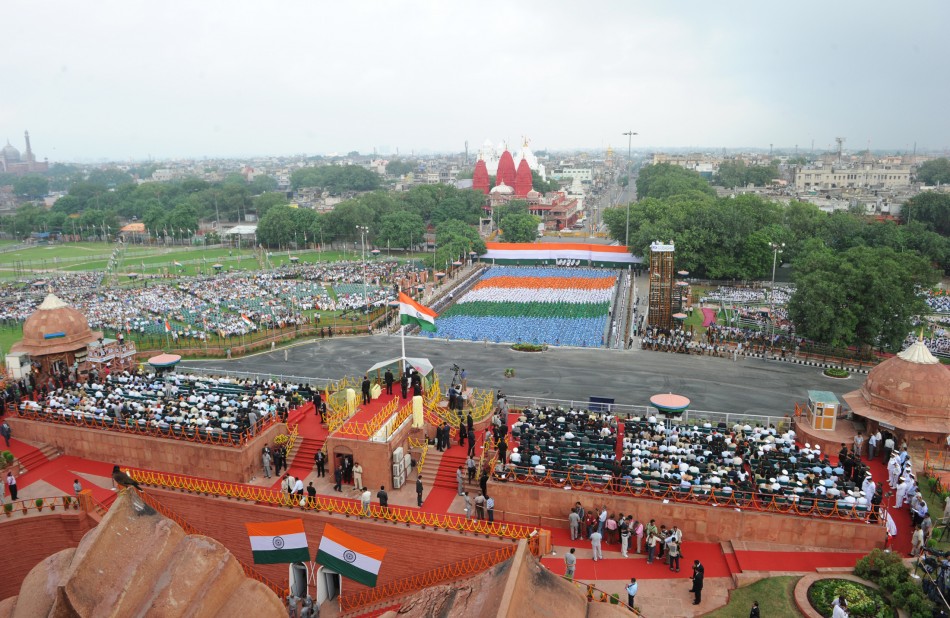
August 15th will always hold a special place in the hearts of Indians. It represents the countries’ liberation from British imperialistic control in 1947, following a protracted, valiant, and difficult war by innumerable independence fighters. With reverence, solidarity, and gratitude for those who gave their lives, the country commemorates independence and freedom on this day. The country is a hive of patriotism, from the Prime Minister’s address at the Red Fort to flag-raising rituals at offices and schools, and public gatherings.
The Historical Importance of 15th August
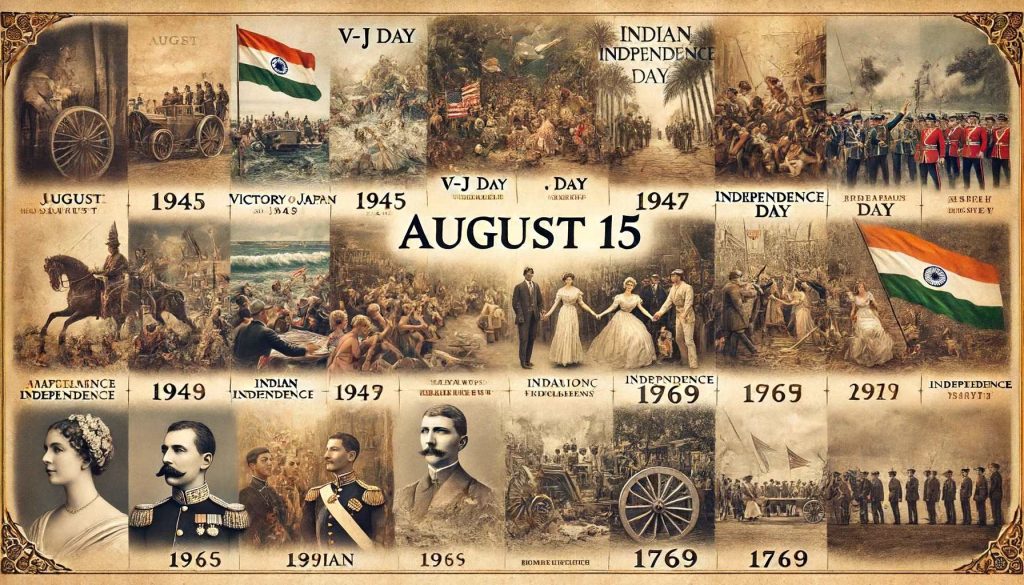
The story of 15th August, which is India’s Independence is one of resilience, unity, and sacrifice. Understanding its historical roots makes the celebrations even more meaningful.
- The Beginning of Resistance: India’s fight for freedom didn’t start overnight. The seeds were sown during the 1857 Revolt, often called the First War of Independence, when soldiers and civilians rose against British policies. Though it was suppressed, it sparked a new sense of nationalism among Indians.
- Rise of National Leaders: Leaders like Mahatma Gandhi, Subhas Chandra Bose, Jawaharlal Nehru, Sardar Vallabhbhai Patel, Bal Gangadhar Tilak, and many others became the faces of India’s struggle.
- Each had a unique approach: Gandhi’s path of non-violence, Bose’s call for armed resistance, and Nehru’s diplomatic vision, but their goal was the same: a free India.
- Mass Movements and Public Unity: From the Swadeshi Movement to the Quit India Movement of 1942, Indians across regions and communities stood together, boycotting British goods, marching in protests, and facing imprisonment.
- The Midnight of Freedom: On the night of 14–15 August 1947, the first Prime Minister, Pandit Nehru, delivered his famous “Tryst with Destiny” speech at the stroke of midnight, declaring India a free nation.
- Partition and Independence: Alongside the joy of freedom came the tragedy of partition. India and Pakistan became two separate nations, leading to mass migrations and widespread communal violence.
Despite the pain, the people of India looked forward to building a new future.
How India Celebrates Independence Day
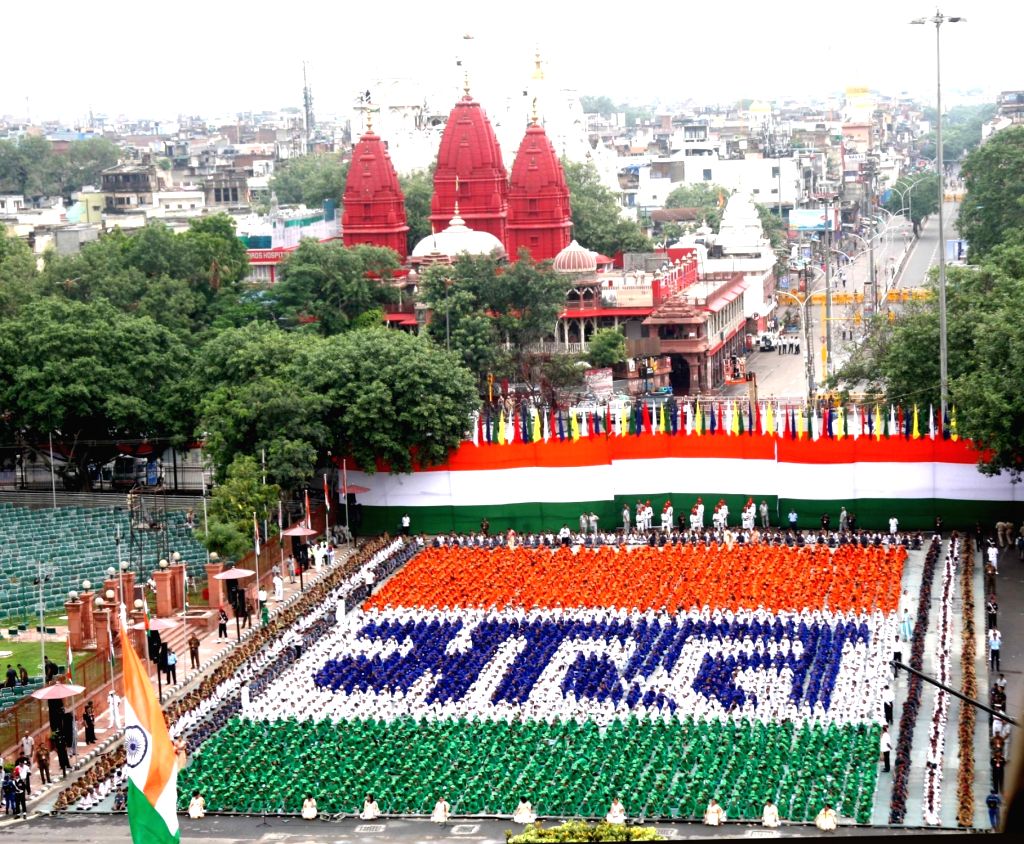
15th August is a national holiday, but more importantly, it is a nationwide celebration of pride and unity. The key ways it’s celebrated include:
- Flag Hoisting Ceremonies: The Prime Minister then raises the national flag at Delhi’s Red Fort and gives a speech on our pride in our accomplishments and future aspirations.
- Cultural Programs: Based on the liberation fight, schools, universities, and communities host patriotic songs, dances, plays, and exhibits.
- Parades and March Past: To exhibit discipline, express pride in their nation, and represent their role in democracy, security forces and parade children participate.
- Kite Flying: For many celebrations, flying a kite is a custom that symbolizes joy and freedom.
- Decorations everywhere: Markets, streets, residences, and other places are all decked out in the saffron, white, and green hues of the Indian flag.
The Indian National Flag, The Heart of Independence Day
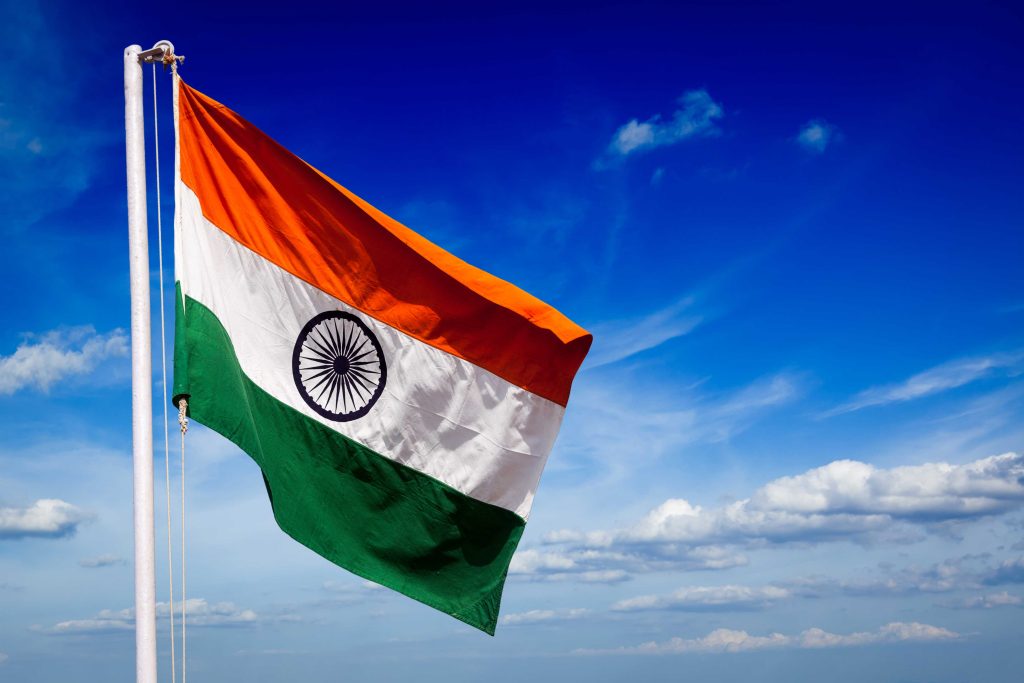
The Tiranga is more than just a piece of cloth; it is a symbol of the nation’s pride and identity.
- Saffron (Top Stripe): Represents courage and sacrifice, reminding us of the bravery of those who fought for freedom.
- White (Middle Stripe): Symbolizes peace, truth, and honesty, which are essential for harmony in a diverse country.
- Green (Bottom Stripe): Stands for fertility, prosperity, and the nation’s agricultural heritage.
- Ashoka Chakra (Blue Wheel): The 24 spokes signify progress, law, and the constant motion of life, inspired by the Dharma Chakra on Emperor Ashoka’s lion capital.
Respect for the flag is deeply ingrained in Independence Day celebrations. Hoisting it is done with strict protocol, and people stand at attention while singing the national anthem.
Jana Gana Mana, The National Anthem of India
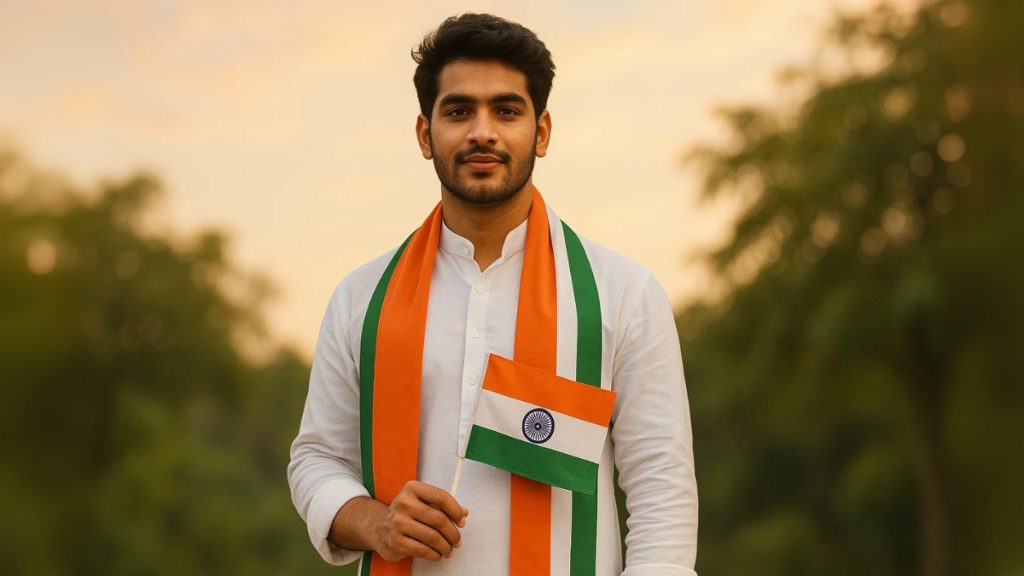
No 15th August celebration is complete without the heartfelt singing of Jana Gana Mana, India’s national anthem. Written by Nobel laureate Rabindranath Tagore in Bengali, it was officially adopted as the national anthem on 24 January 1950. The anthem celebrates the unity, diversity, and cultural richness of the nation, invoking pride and devotion among all citizens.
On 15 August, it is sung after the flag hoisting ceremony in schools, government institutions, and public gatherings. As per protocol, everyone must stand at attention as a mark of respect, and the anthem should be sung in its entirety within approximately 52 seconds. Its powerful words and melody bring people together, reinforcing the spirit of freedom and unity that the day represents.
79th Year of Independence: A Special Milestone
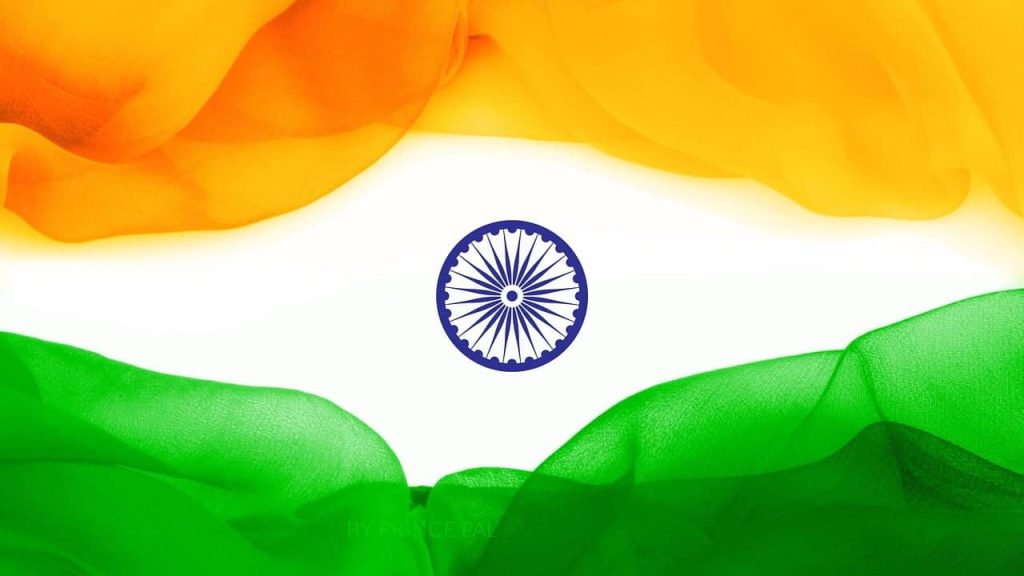
As India celebrates 79 years of freedom in 2025, the occasion carries extra pride and meaning. It is not only a reminder of the past but also a vision for the future.
- Historic Mark: 2025 marks the 79th year since India gained freedom in 1947, making it a moment of reflection on the nation’s journey.
- Progress Since Independence: From building democratic institutions to becoming a global leader in technology, space, and culture, the nation has come a long way.
- Renewed Commitments: Leaders and citizens use this year’s celebrations to focus on national unity, sustainable growth, and social harmony.
- Patriotic Energy: Across the country, special programs, exhibitions, and cultural events are being held to highlight India’s achievements over the decades.
This year’s Independence Day is not just a celebration, it is a powerful reminder of how far India has come and how much further it can go. The unity that the day represents.
Independence Day and the Spirit of Patriotism
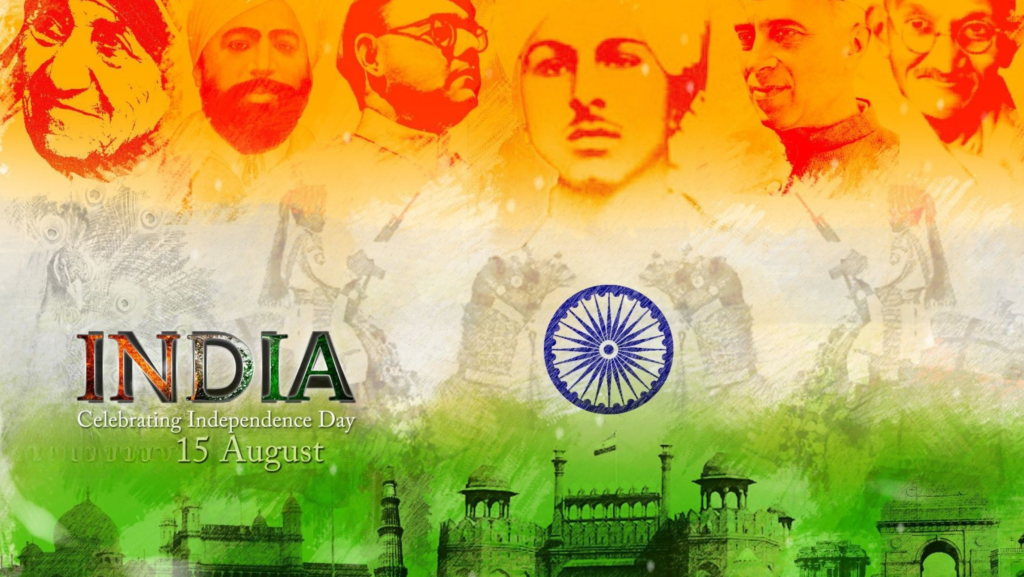
August 15th is more than simply a flag-raising day; it’s a time to celebrate India’s history and pledge to its future.
- Honoring the Freedom Fighters
Every one of our festivities honors those who died, were imprisoned, or devoted their lives to the cause of freedom.
- One Country, One Diversity
India, a country of over a billion people, is strong because of its variety in language, culture, and religion. Independence Day serves as a reminder that we are all part of the same country, regardless of our ethnic backgrounds.
- National Initiative
Genuine patriotism is about making a positive contribution to the country, whether it is via social duties, honest taxation, or environmental care.
How Schools and Communities Celebrate
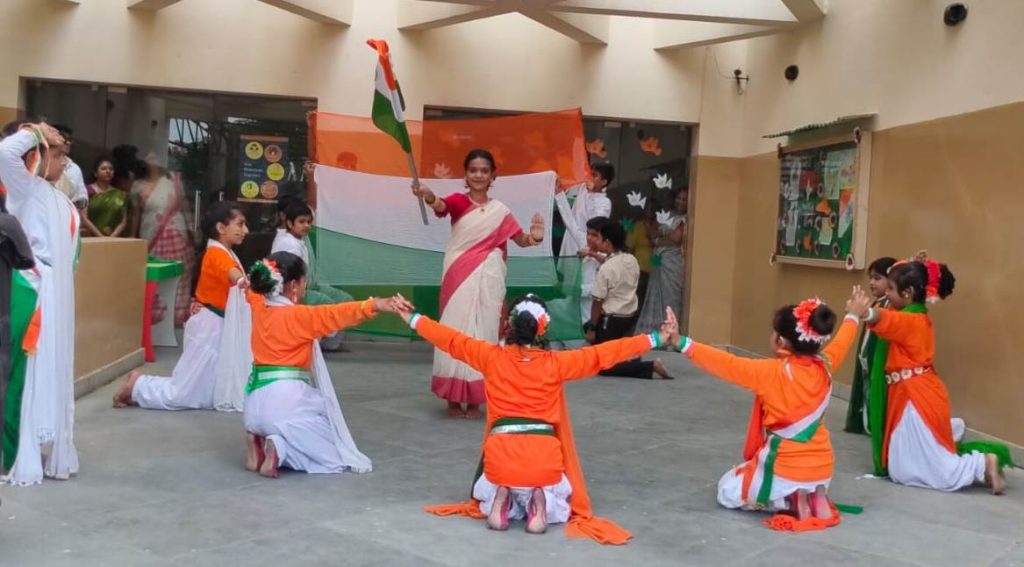
Communities and schools are crucial to maintaining the customs around Independence Day.
- Assemblies at Schools
The national song, flag raising, and student speeches honoring those who fought for freedom and the real meaning of independence are common features of morning assemblies.
- Competitions for Fancy Dress
Children frequently dress up as famous figures in these contests, such as Mahatma Gandhi, Bhagat Singh, or Rani Lakshmi Bai, who all impart knowledge of our independence struggle’s history engagingly and dynamically.
- Cultural Shows
Students and young people perform dance and theater in cultural shows that depict moments from the fight for independence from British control. These performances always motivate students and audiences to consider change.
- Local Occasions
In certain towns, art exhibits and parades are frequently planned by local groups. To commemorate the day, localities may even host food festivals, including traditional Indian cuisine.
Celebrations of Independence Day in Various Indian Locations
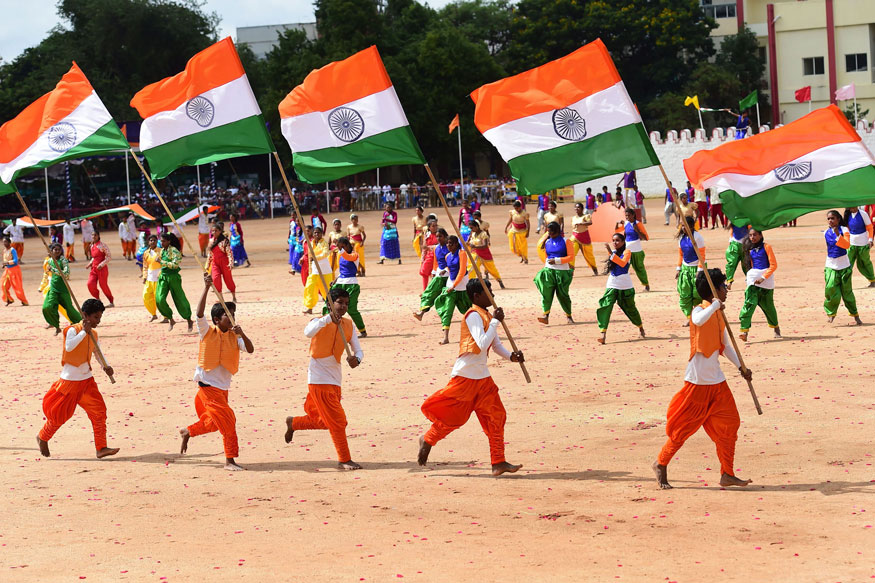
Although the celebration’s spirit is universal, there are various regional variations:
- Delhi: The Red Fort will host national public festivities that will be simultaneously televised across the nation.
- Ahmedabad: They have huge kite-flying competitions where local communities compete against one another.
- Mumbai: Musical performances, community gatherings on the beach, and two-wheeled patriotic parades.
- Kolkata: Cultural events honoring Bengal’s role in the fight for freedom.
- North-East India: Traditional music and dances are performed at community events, fusing regional flair with national festivities.
Modern Relevance of 15th August

Independence Day, even decades after 1947, is about the future’s labor, not just the weight of previous achievements.
- Recognizing Achievements
India has made significant advancements in the fields of technology, health, economics, and space exploration. These accomplishments are recognized at the celebration of independence.
- Ongoing Difficulties
Social injustice, unemployment, poverty, and climate change are still present today. Every year on Independence Day, we get a chance to consider how we might all work together to address these issues.
- Appealing Representation
India’s culture is sought after at festivals worldwide, and its voice can now be heard on international appeals. Citizens are reminded on Independence Day that this image needs to be maintained on their behalf.
How Technology Has Changed Independence Day
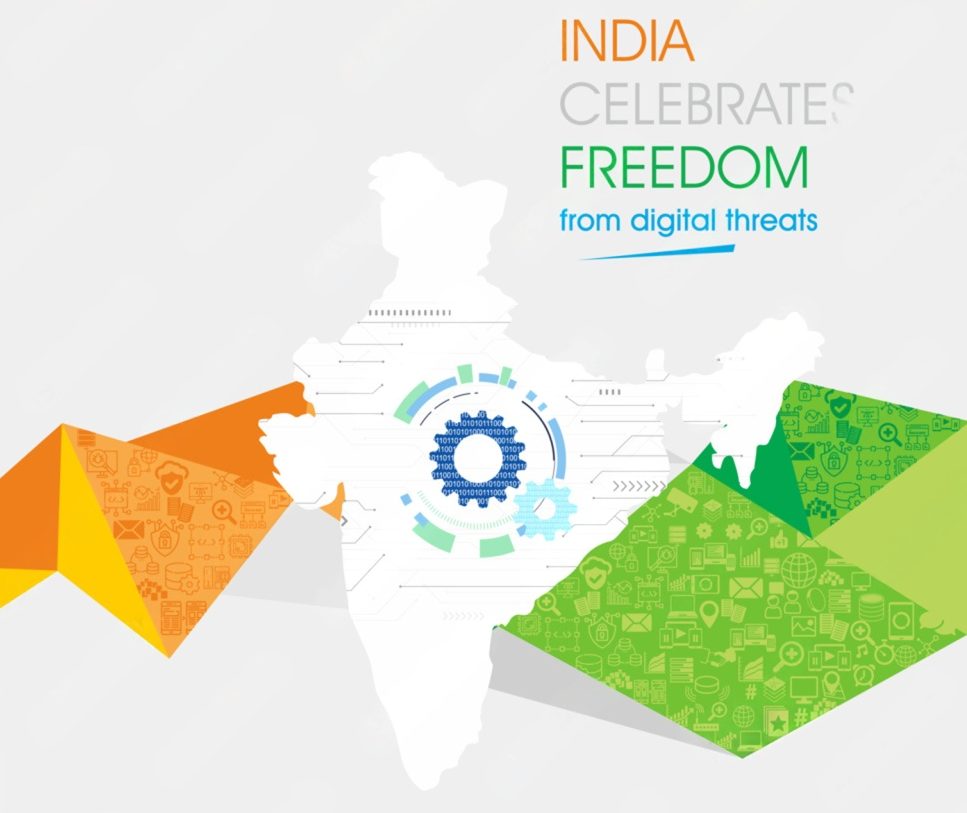
The celebration has evolved in the technological age.
- Virtual Flag hosting: For staff members and students who are unable to attend in person, several organizations and educational institutions are holding virtual flag-raising ceremonies.
- Social Media Campaigns: Posts showcasing the tricolor, historical details, and patriotic quotations abound.
- Online Cultural Events: Throughout the day, schools and organizations stream cultural events, enabling individuals from all over the world to participate virtually in plays, dances, and lectures.
- Digital-based Festive Sales: Online retailers provide tricolor merchandise and exclusive deals.
Inspirational Messages for Independence Day
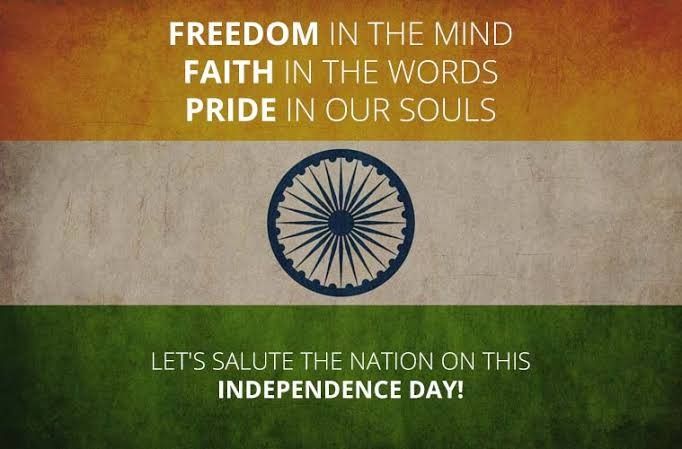
Sharing inspirational quotes that encourage group action is another way to celebrate Independence Day.
- “Freedom is not a gift but a responsibility.”
- “Let’s honor the past by building a brighter future.”
- “Our flag flies high because of the sacrifices of many.”
If you’re looking for the perfect words to share your patriotism and gratitude this Independence Day, we’ve put together a heartfelt collection of 15 August wishes and greetings you can send to friends, family, and colleagues. These messages capture the true spirit of freedom and unity.
FAQs
Q1: Why is 15th August important for India?
It marks the day in 1947 when India gained independence from British rule, ending nearly 200 years of colonial control.
Q2: Who was the first Prime Minister to hoist the national flag on Independence Day?
Pandit Jawaharlal Nehru hoisted the flag at the Red Fort for the first time on 15th August 1947.
Q3: What is the significance of the Ashoka Chakra in the flag?
The Ashoka Chakra represents motion, progress, and the eternal cycle of life.
Q4: Is Independence Day celebrated in the same way across India?
While traditions vary, the common elements are flag hoisting, patriotic programs, and community gatherings.
Q5: Why do people fly kites on 15th August?
Kite flying symbolizes freedom and the joy of independence, with the skies filled with the colors of the nation.
Q6: Is 15th August celebrated outside India?
Yes, Indian communities abroad celebrate with cultural programs, flag hoisting, and traditional food, keeping the spirit alive globally.
Conclusion: Keeping the Spirit of Freedom Alive
Independence Day is more than a date in history; it is a reminder of the sacrifices, courage, and unity that made our freedom possible. The 15th of August is a celebration of pride, but also a call to responsibility.
The freedom we enjoy today came at the cost of countless lives and years of struggle. Honoring it means working together to build a stronger, fairer, and more united India. True patriotism is shown not just in celebrations, but in our daily actions — helping our communities, respecting diversity, and contributing to progress.
As we hoist the flag and sing the national anthem each year, let’s also pledge to protect the values of liberty, equality, and justice, ensuring that the spirit of 15th August lives on for generations to come.


